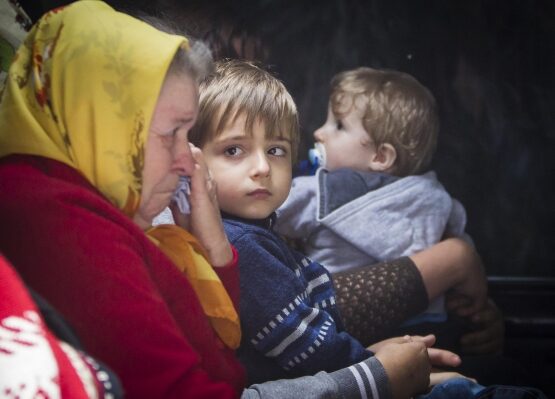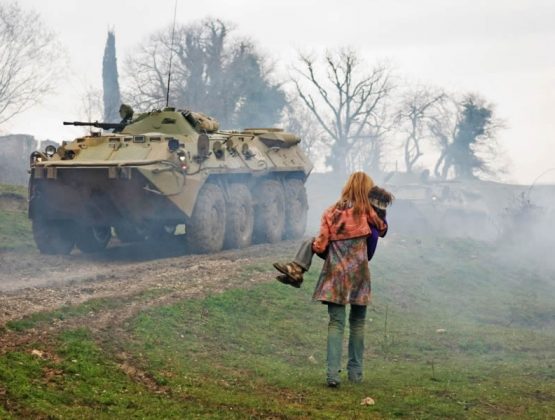PROBLEMATICS
The way to formation of a happy person, a prosperous country, a healthy society lies through hundreds of obstacles. And today’s crisis in the light of the annexation of Crimea and the hybrid war in the Southeast of Ukraine has to become not a reason for another decline but a stimulus to act. For positive moves the understanding of that the origins of wellbeing of the country are in its unity, in its citizens feeling consolidated and protected is needed. However, the residents of different regions of Ukraine have different traditions, history, daily language of communication, social-economic conditions and political views that have a varied impact on formation of the national identity of Ukrainians.
According to the data of recent research studies of the Institute of Sociology of the National Academy of Sciences of Ukraine in cooperation with the Ukrainian Institute of Research of Extremism, the residents of the Eastern and the Southern regions of the country consider themselves able to influence the social processes by 12% less than the residents of the Western and the Central regions. Fragmentation of ideas of Ukrainians about their own civism, their involvement in the processes going on in the country can lead to misunderstanding and even to discrimination of those who are far from feeling themselves patriots.
![Kak_admini_sajtov_mogut_pomoch_Yugo-Vostoku_Ukraini[1] Kak_admini_sajtov_mogut_pomoch_Yugo-Vostoku_Ukraini[1]](https://vrts.vialex.de/wp-content/uploads/2016/02/Kak_admini_sajtov_mogut_pomoch_Yugo-Vostoku_Ukraini1-555x420.jpg)
On top of it, one more trauma is added – involuntary contacting with the unfamiliar environment, facing accusations of the social and political problems, assuming the role of the rejected or ‘scapegoats’. An environment like this turns out to be a veritable hell for children.
The social-psychological deadaptation of children-sufferers represents a serious danger for Ukraine because in several years the traumatized children will become adults but on their memory sufferings and expulsion will be engraved and the country is likely to have a whole generation of non-pro-Ukrainian spirited people. And this is a ‘ticking bomb’.
Nowadays the ‘children of war’ notion does not stand for that older, morally formed population which was born before and during the World War II. Today’s children of war are 1.7 mio. of children literally, these are displaced children and children who still stay in the occupied territories.


“War is when innocent people are killed for the interests of others” – Winston Churchill
Besides an unstable mental state due to their stay in the zone of armed conflicts, migrants from the East of Ukraine also get covertly rejected by those people in whose territories they found themselves. So, victims get from the stressful war situation into another environment where they have to fight for the survival, avoiding contempt.
Many times more deplorable the situation appears to be for children and their parents from the ATO zone. According to the UNISEF data, around a half of all children of the Eastern region of Ukraine aged between 7 and 18 years were eye-witnesses of military operations, including being threatened by armed people. For the children’s mentality in which the adaptation mechanisms are not formed yet, a regular watching of the cruel realities of war is fraught with the deep negative changes of the personality – from rebelliousness and aggression to hypererethism, fears and cognitive malfunctions – the typical symptoms of the post-traumatic stress disorder.
![get_img[1] get_img[1]](https://vrts.vialex.de/wp-content/uploads/2016/02/get_img1-555x383.jpg)
They are exactly the children who saw tanks, military equipment and military operations, who were witnesses of the ravages of war, wounding and death …
Children-refugees are the generation which goes through the stage of socialization, formation of their inner self and the future external, collective „we” – the political and civil culture of all people. But the lack of their own national identity they experience, the horrors of military and political actions they lived through, the unacceptance in a new environment, the absence of resources for fulfilling life. These psychological problems must be dealt with not only at the individual but also at the social level. As the national identity and the power of the state are being formed when people are attracted by the common idea, respect their customs and traditions, love their people, know how to solve problems together, to communicate effectively and to cooperate in the course of a significant activity. The social and psychological assistance to children of war, the patriotic education of displaced children is an urgent business of all not indifferent about building up the safe, self-sufficient Ukraine!









